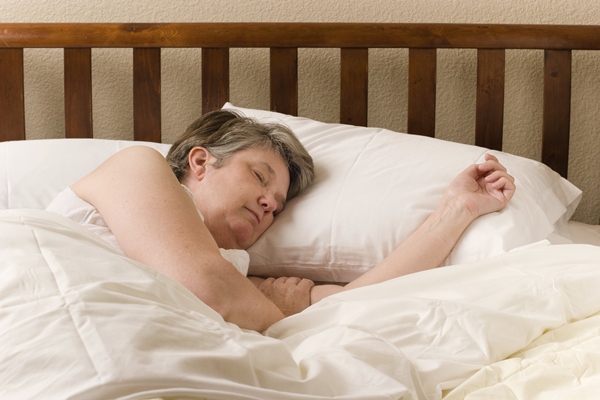 It seems logical to think that as we get older, it should be easier to sleep. After all, there are no more late night work stresses keeping us awake. Children are all grown up and fending for themselves as adults in the world. There is plenty of opportunity to get to bed at a reasonable time and to sleep in a little later, if need be.
It seems logical to think that as we get older, it should be easier to sleep. After all, there are no more late night work stresses keeping us awake. Children are all grown up and fending for themselves as adults in the world. There is plenty of opportunity to get to bed at a reasonable time and to sleep in a little later, if need be.
Strange then, that a new study has found that around 25% of older women experience sleep problems. These sleep problems are significant enough to cause negative changes in a woman’s quality of life. Older women who aren’t getting enough sleep are often driven to take medications. They also struggle a lot more with chronic illnesses.
So what’s happening with these older women and why is such a large proportion of the population struggling to sleep properly? Is menopause to blame?
The Finnish researchers who conducted this latest study say menopause is not to blame. The researchers looked at common sleep problems in women before they reached menopause. This is important for doctors to know, as often women with menopausal insomnia are treated with hormone replacement therapy. But if these insomnia symptoms were present before menopause, HRT therapy won’t necessarily usher in any improvements in symptoms and may, in fact, cause further health problems in the form of side effects.
For the study, 850 mothers were surveyed and asked to report about their sleep habits. The women were an average age of 42 and a third of the group had at least one chronic illness. Almost 30% were taking regular doses of medication.
Sleep problems were mostly defined as waking up in the middle of the night, which occurred in 60% of the women surveyed. Another 20% reported that they woke up too early in the morning on a regular basis. And 42% complained of morning sleepiness, while 32% complained of daytime sleepiness.
Interestingly, women who drank occasionally were found to have better sleep quality and less trouble with falling asleep at work.
In this particular study, no association was found between weight or physical activity and insomnia. The researchers noted that everyone in this study had weights which fell within a “normal” range. Other research has linked obesity with sleep apnea. The relationship between physical activity and exercise is much more complex, the researchers say, and was not explored in this particular clinical trial.
In another study, researchers looked at the effects of behavioral treatment of insomnia in older adults. Almost 40 older adults with insomnia were recruited for the trial. The researchers found that patients with insomnia responded positively to behavior therapy.
If you’re suffering from sleep problems, rather than reaching for medication, consider trying some alternative treatments aimed at improving both the quality of your sleep and the amount you get each night. Sometimes even simple adjustments such as sleeping in a completely darkened room that’s soundproofed from outside noise could make a significant positive improvement in your sleep habits.
Sources:
Doyle, K., “Sleep problems common among middle-aged women,” MedlinePlus web site, Dec. 11, 2013; http://www.nlm.nih.gov/medlineplus/news/fullstory_143360.html, last accessed Dec. 24, 2013.
Troxel, W.M., “Predictors of Treatment Response to Brief Behavioral Treatment of Insomnia (BBTI) in Older Adults,” J Clin Sleep Med. December 2013; 9(12): 1,281-9.
